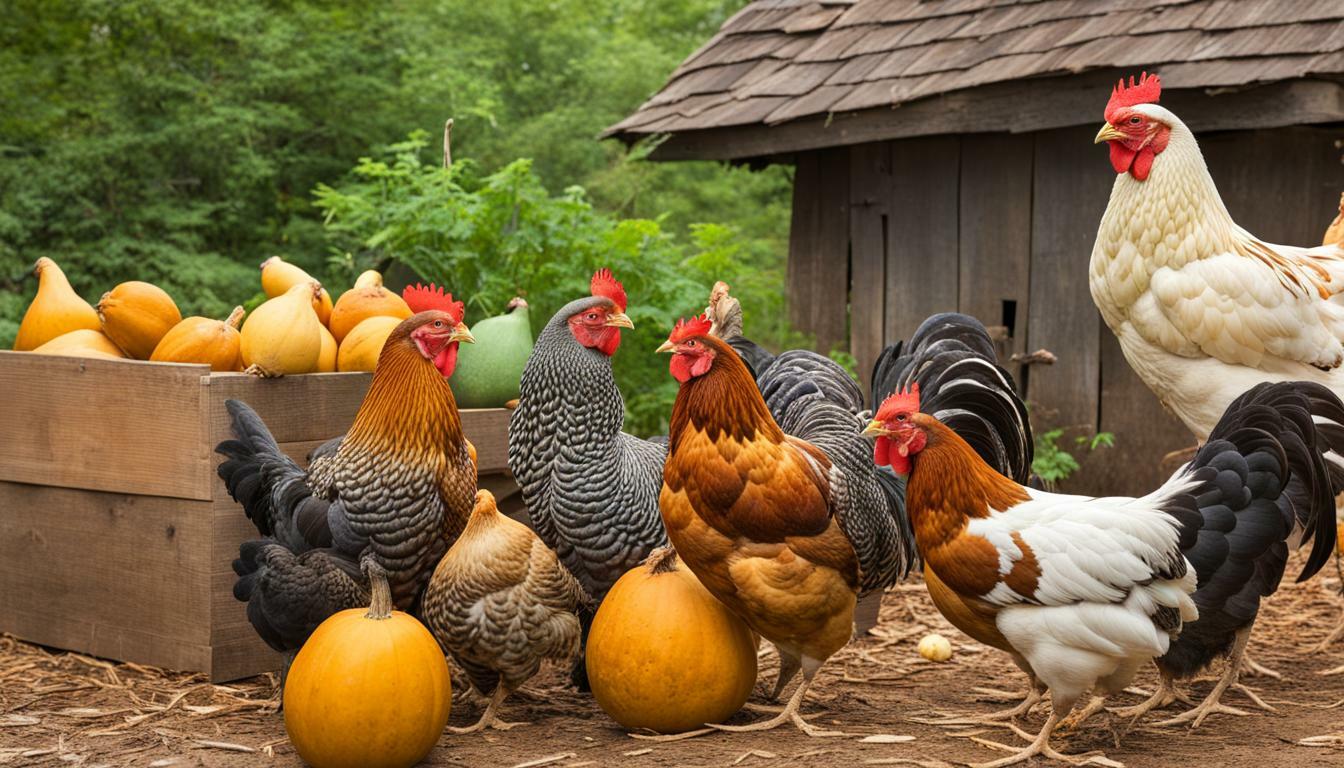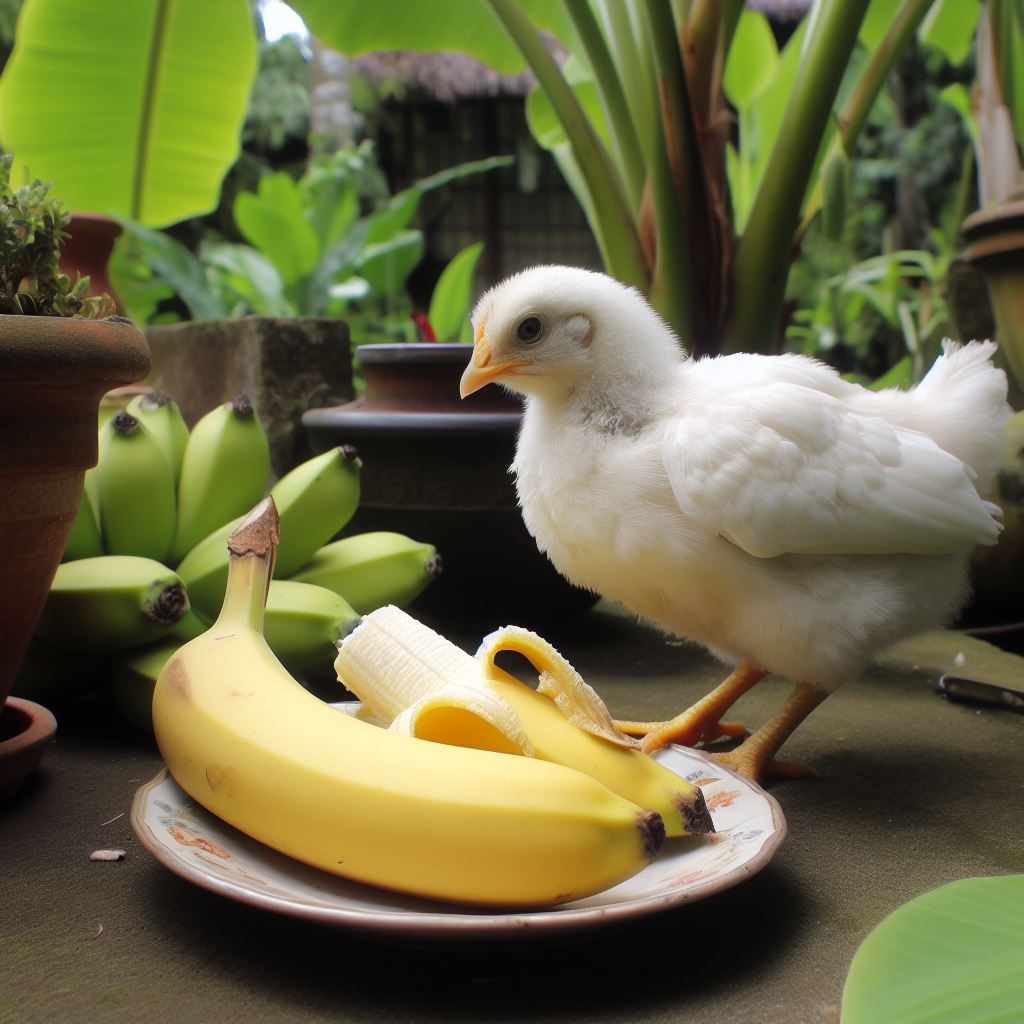Can Chickens Eat Pickled Beets? Find Out the Answer Here!

Table of content:
- Benefits of Pickled Beets for Chickens
- Are Pickled Beets Safe for Chickens to Eat?
- How Much Pickled Beets Can Chickens Eat?
- Do Chickens Like the Taste of Pickled Beets?
- Will Pickled Beets Affect Chicken Egg Yolk Color?
- Can Too Many Pickled Beets Hurt Chickens?
- Are the Greens from Pickled Beets Okay for Chickens?
- Should I Rinse Pickled Beets Before Feeding to Chickens?
- Is it Better to Feed Chickens Raw or Pickled Beets?
- Final Thoughts
Chickens can absolutely eat pickled beets in moderation as an occasional treat. Pickled beets provide important nutrients and can be a healthy addition to a balanced chicken diet. However, there are some risks and precautions to keep in mind when feeding chickens pickled beets.
Benefits of Pickled Beets for Chickens
Pickled beets offer chickens a few potential health benefits:
- Vitamins and minerals: Pickled beets contain vitamin C, iron, magnesium, phosphorus, potassium, and fiber. These support chickens’ overall health.
- Antioxidants: Pickles contain antioxidants like betalains that reduce cell damage. This may boost immunity.
- Carotenoids: Beets contain carotenoids that chickens convert to vitamin A for healthy eyes and feathers.
- Treat: The tangy flavor of pickles makes them an appealing snack that adds variety to chickens’ diet.
Are Pickled Beets Safe for Chickens to Eat?
In moderation, pickled beets are generally safe for chickens. However, there are some risks to be aware of:
- High sodium: The brine used to pickle beets contains a lot of salt, which can harm chickens if over consumed.
- Acidity: Pickles have an acidic pH which may upset chickens’ digestive systems if they eat too much.
- Anti-nutrients: Raw beets contain oxalates, but the pickling process may reduce these anti-nutrients.
As long as chickens only eat a small amount of pickled beets infrequently, these risks are minimized. But it’s best to take precautions.
How Much Pickled Beets Can Chickens Eat?
Chickens should only eat pickled beets in moderation 1-2 times per week at most. Here are some serving guidelines:
- Adult chickens: 1-2 small sliced pickled beets 2 times per week.
- Chicks: A few beet slivers 1 time per week.
Very limited amounts are enough for chickens to safely enjoy pickled beets’ taste and nutrients without adverse effects. It’s best to start slowly to observe how chickens’ health responds.
Do Chickens Like the Taste of Pickled Beets?
Most chickens love pickled beets! The tangy, vinegary flavor provides enjoyable variation from regular feed. The rich colors and crunchy texture also attract chickens’ attention.
Some key reasons chickens find pickled beets appetizing include:
- Natural foragers: Chickens evolved to enjoy diverse foods, including acidic items like fermented berries.
- Treat-loving: Chickens relish high-value treats, so pickled beets get them excited.
- Colorful: Vibrant red pickled beets catch chickens’ eyes better than plain brown pellets.
Make sure to rinse off brine before serving though, as the high sodium content may deter chickens if too strong.
Will Pickled Beets Affect Chicken Egg Yolk Color?
It’s a myth that feeding chickens pickled beets will make their egg yolks red. Here’s why:
- Carotenoids: While beets contain red-hued carotenoids, chickens don’t deposit these pigments into eggs. Yellow-orange carotenoids like lutein get transferred.
- Dosage: The small amount of pickled beets chickens eat is unlikely to impact yolk color. Large doses of carotenoid supplements can potentially shift yolk hues.
- Genetics: A chicken’s breed plays a bigger role in egg color than minor dietary factors like pickled beets. Some breeds naturally lay darker eggs.
So pickled beets can be fed safely without worrying about reddish yolk discoloration. Focus instead on the health benefits for chickens.
Can Too Many Pickled Beets Hurt Chickens?
Eating pickled beets in excess over long periods can potentially harm chickens:
- Sodium toxicity: Too much salty brine causes electrolyte imbalances that can lead to neurological issues or even death.
- Dehydration: The acidic pH of pickles leaches moisture from chickens’ digestive tract, possibly causing dehydration if consumed excessively.
- Gut impaction: Indigestible beet fibers may clog chickens’ digestive tracts if large amounts are eaten daily.
- Nutritional imbalance: Pickled beets lack complete nutrition, so over-feeding them can lead to deficiencies long-term.
That’s why moderation and variety is key – pickled beets should only be occasional snacks. A balanced diet is crucial for chickens’ wellbeing.
Are the Greens from Pickled Beets Okay for Chickens?
Yes, the leafy greens attached to pickled beets provide extra nutrition and are safe for chickens to eat. Benefits of pickled beet greens include:
- Vitamins: The greens contain vitamin A, vitamin C, riboflavin, calcium, and magnesium – nutrients chickens need.
- Fiber: Chickens gain digestive fiber by eating beet greens.
- Low oxalates: Cooking during pickling helps reduce anti-nutrients like oxalates in the greens.
Rinse off the brine before serving pickled beet greens. Then chop the greens finely, as chickens may struggle to digest them otherwise. Offer just a few small pieces along with the sliced beet.
Should I Rinse Pickled Beets Before Feeding to Chickens?
Always rinse pickled beets (and beet greens) before feeding them to chickens. Washing off the salty brine reduces the risks of:
- Sodium toxicity: Excess salt from the pickling liquid can harm chickens. Rinsing removes some sodium.
- Rejecting food: Chickens may avoid eating strongly vinegary pickled beets. A quick rinse reduces intense acidity.
- Dehydration: Rinsing pickled foods helps counter their drying effects on chickens’ digestive systems.
A brief rinse under fresh water is all that’s needed. Pat the beets dry before chopping them into bite-sized pieces to feed chickens.
Is it Better to Feed Chickens Raw or Pickled Beets?
Pickled beets are usually the safer choice over raw beets for chickens:
- Fewer anti-nutrients: The pickling process helps reduce oxalic acid levels that can bind minerals.
- Easier to digest: Raw beets are very tough and fibrous. Pickling softens beets’ cell structure so chickens can digest them better.
- More appealing taste: Chickens tend to find tangy pickled beets more palatable as a treat than bitter raw beets.
However, raw beets are fine to feed in very limited amounts if chickens enjoy them. Introduce new treats like beets gradually to observe chickens’ preferences.
Final Thoughts
Pickled beets are a fine supplemental treat for chickens in moderate amounts. Limit intake to a few small slices 1-2 times weekly. Rinse pickled beets and greens first to remove excess brine. Then observe chickens closely and adjust amounts if any health issues arise. Feed a balanced main diet, and pickled beets can be a colorful, appealing addition that provides nutritional variety. With some sensible precautions, chickens can safely enjoy this flavorful snack.
Welcome. I’m Adreena Shanum, the proud owner of this website, and I am incredibly passionate about animals, especially poultry. I founded adreenapets.com as a labor of love, stemming from my desire to share my knowledge and experiences with poultry enthusiasts worldwide.





